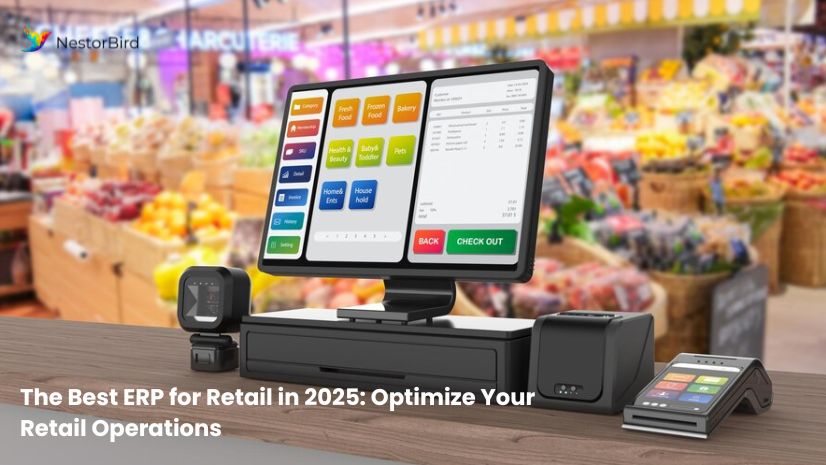 Link Insertions on Real Blogs – Quick Wins for Better Rankings!
Link Insertions on Real Blogs – Quick Wins for Better Rankings!
How Manufacturing ERP Helps In Reducing Costs And Improving Profit Margins
Written by Nestor Bird » Updated on: June 17th, 2025

Manufacturing ERP
Manufacturing ERP (Enterprise Resource Planning) is an integrated software solution that helps manufacturers manage core business functions. It combines processes such as production, inventory management, supply chain logistics, and financial planning into a unified system.
Key features include:
Real-time data tracking – Provides accurate insights for better decision-making.
Automation of tasks – Reduces manual errors and administrative burden.
Inventory and supply chain management – Prevents excess stock and minimizes waste.
Financial reporting – Assists in budget management and cost optimization.
Production scheduling – Ensures efficient resource allocation and minimal downtime.
By implementing an ERP system, manufacturers can enhance productivity while minimizing operational inefficiencies.
Ways Manufacturing ERP Reduces Costs
Optimized Inventory Management
Inventory mismanagement leads to excess holding costs and material shortages. Manufacturing ERP systems track inventory levels in real-time, ensuring optimal stock availability without over-purchasing.
- Prevents overstocking by automating reorder points based on demand forecasts.
- Minimizes storage costs through efficient warehouse management.
- Reduces waste by ensuring proper inventory rotation and expiration tracking.
Streamlined Production Planning
- Manufacturing ERP helps in aligning production with demand to reduce resource wastage.
- Automated scheduling minimizes downtime and ensures efficient use of materials.
- Real-time monitoring of production performance prevents bottlenecks.
- Better demand forecasting leads to leaner operations and cost savings.
Automation of Repetitive Tasks
Manual processes such as order entry, invoice generation, and reporting consume time and resources. ERP systems automate these tasks, reducing human errors and administrative costs.
- Eliminates redundant paperwork, saving time and reducing operational costs.
- Enhances efficiency by freeing employees to focus on higher-value tasks.
- Reduces errors that could lead to financial losses.
Improved Supplier and Procurement Management
A well-managed supply chain helps manufacturers procure raw materials at the best possible price while reducing lead times.
- Automated purchase order processing ensures timely procurement and cost savings.
- Supplier performance tracking helps in negotiating better deals.
- Centralized procurement management eliminates unnecessary purchases.
Enhancing Profit Margins with Manufacturing ERP
Data-Driven Decision Making
Manufacturers need precise data to refine their cost-saving strategies. ERP software provides real-time analytics that help in:
- Identifying areas where expenses can be cut.
- Tracking production efficiency for cost control.
- Reducing unplanned downtime through predictive maintenance insights.
Enhanced Customer Satisfaction
A well-managed manufacturing process leads to improved customer service, directly impacting profit margins.
- Faster order fulfillment increases customer trust and repeat purchases.
- Accurate demand forecasting ensures timely product availability.
- Improved communication between departments enhances service quality.
Compliance and Risk Management
Adhering to industry regulations prevents financial losses due to fines and legal issues.
- Automated compliance tracking ensures adherence to industry standards.
- Regulatory reporting features minimize audit risks.
- Enhanced cybersecurity protects sensitive business data.
Choosing the Right Manufacturing ERP System
Selecting an ERP solution requires evaluating several factors to ensure it meets business needs.
Factors to Consider:
Scalability – The ERP system should grow with your business.
Ease of integration – Compatibility with existing tools is crucial.
User-friendly interface – Simplifies training and adoption.
Customization options – Should align with unique manufacturing requirements.
Security measures – Must protect business and customer data.
Conclusion
Manufacturing ERP plays a crucial role in cost reduction and profit enhancement. By automating workflows, optimizing inventory, and improving supply chain efficiency, businesses can minimize expenses and maximize revenue.
Investing in the right ERP system ensures long-term growth, streamlined operations, and a competitive edge in the market. Manufacturers looking to enhance profitability should consider integrating an ERP system that aligns with their operational needs.
Note: IndiBlogHub features both user-submitted and editorial content. We do not verify third-party contributions. Read our Disclaimer and Privacy Policyfor details.
Copyright © 2019-2025 IndiBlogHub.com. All rights reserved. Hosted on DigitalOcean for fast, reliable performance.













